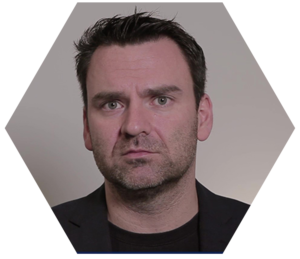- Criminology / Chances / Prof. Dr. Bernd Belina
Prof. Dr. Bernd Belina
Chances
- Belina: Phenomenon
- Belina: Threat
- Belina: Vision
The best crime prevention is and remains a good social policy and this includes aspects of economic policy, education policy, urban policy etc. And in these areas, smart solutions can be very supportive. Smart solutions, i.e. on the basis of big data analyses, on the basis of evaluations of large amounts of data, can help to get a better grip on where which social policy, where which educational interventions might be useful. The new technologies can be helpful in this respect. However, they are not the solution, they are only a means of getting closer to the end of the solutions. A good example of this seems to me to be the radicalisation of the right. It can make a lot of sense to identify spaces on the basis of data sets, even different data, both digital spaces and real spaces in which inhuman statements are made, in which they become sayable, in which they are normalised and possibly also become hegemonic. How can such spaces be identified? By connecting large amounts of data of digital spaces as well as real spaces with each other, and by looking at where the election successes of right-wing parties that represent inhuman positions are concentrated. And where are activities like right wing rock concerts, right wing shops, other right wing infrastructures concentrated? Where is the concentration of violence against those who look differently? Where is the concentration of anti-Semitic violence? Where are the attempts to organise right-wing groups concentrated? With the help of smart technologies, it is possible to get a better grip on these issues and then to see where and in relation to which groups of people and in which spheres interventions of a socio-pedagogical and economic nature make sense. Smart technologies can certainly provide support for this. There is a wide range of surveillance technologies and it always depends very much on what kind of technology is used to solve which problem. There was, for example, the very smart idea of an advisory committee for President Obama in the USA to use predictive policing software in such a way that police officers with an affinity for violence are better identified. This is an attempt to be creative with technology and use it to make policing more democratic, more legitimate, more non-violent. Apart from that, there is a large market for surveillance technologies which is largely driven by the suppliers. There is of course a danger in this, because only what is technically possible can be sold, regardless of the problems it may solve. The task of finding out which means and which technology can actually help to solve which problems is something that we must do and we must not leave it to the companies.

Prof. Dr. Bernd Belina
- Bernd Belina teaches and researches since April 2008 at the Institut für Humangeographie [Institute of Human Geography]
- He received his doctorate from the Institut für Geographie der Universität Bremen [Institute of Geography at the University of Bremen] and subsequently worked at the Institut für Geographie der Universität Potsdam [Institute of Geography at the University of Potsdam] and the Leibniz-Institut für Länderkunde [Leibniz Institute for Regional Geography] in Leipzig.
- His main research interests are historical-geographic materialism, urban geography, political geography and critical criminology
- Die beste Kriminalpolitik ist eine gute Sozialpolitik
- Rechte Umtriebe kartieren (als Vorstufe der Analyse):
- Vorhersage von Polizeigewalt
- Bernd Belina bei Wikipedia
- Phenomenon
- Threat
- Chances






Comments